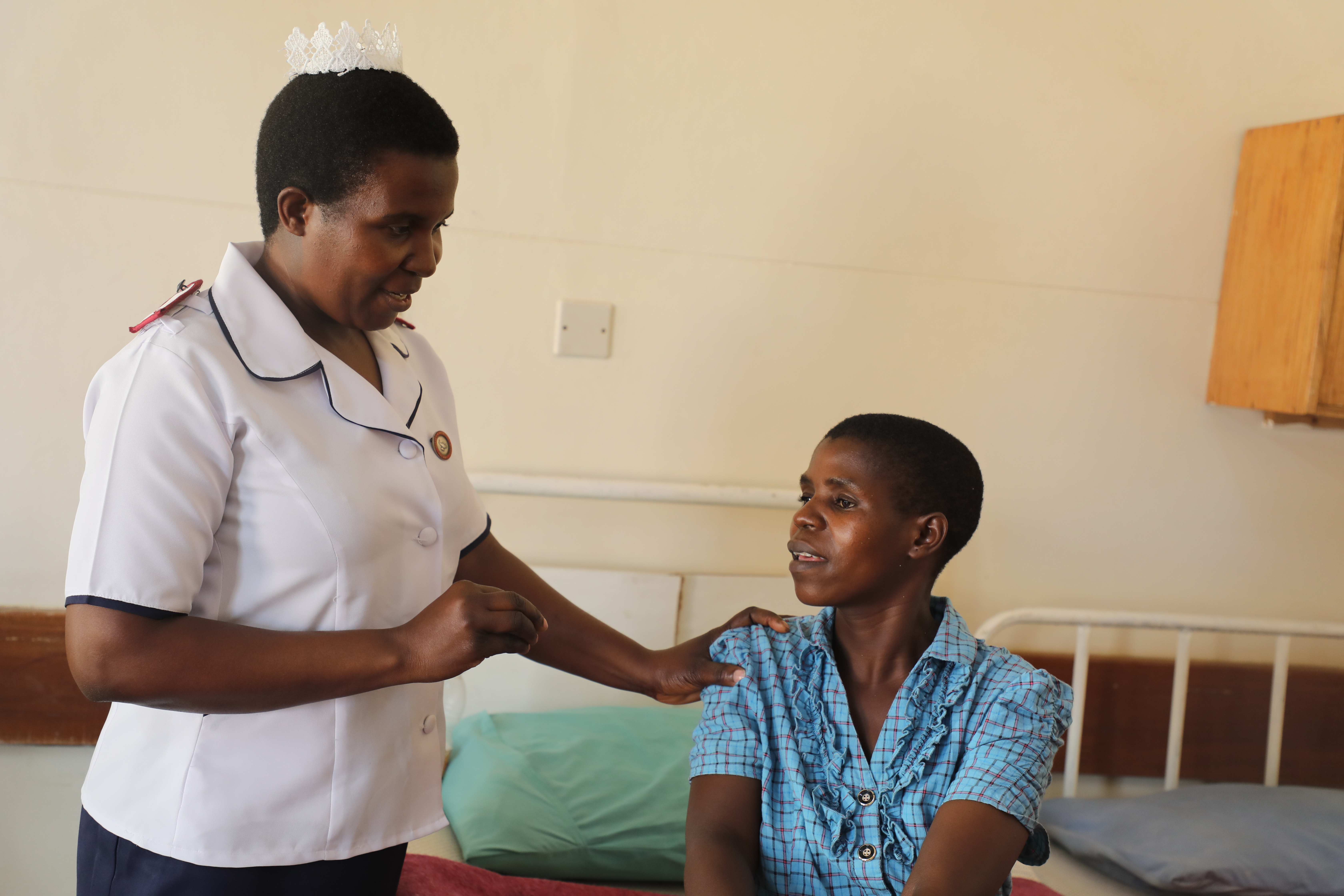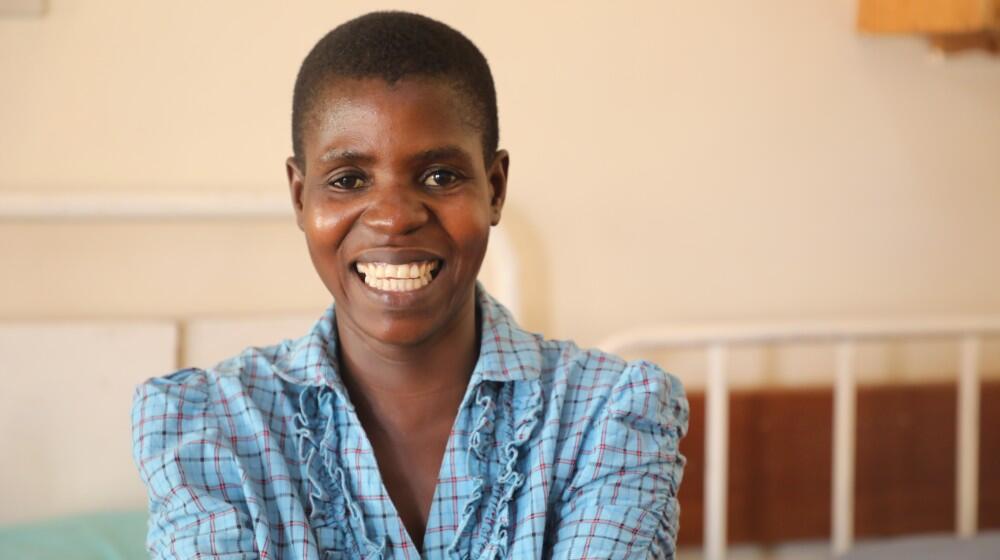Lilongwe, MALAWI –Every pregnancy is different. That’s how Laje Enock from Mkawa village in Mangochi learnt after having a near fatal experience when she was expecting her seventh child. After having given birth six times without an incident, Laje thought she knew everything about giving birth. But as it turned out, this pregnancy proved her wrong.
“I miscalculated the days,” she recalls. “And when the labour pains started, I wasn’t even prepared to go to the maternity centre. I thought I still had a few weeks.”
Fortunately, Laje’s husband was home. He quickly arranged for transport to take his wife to the nearby health centre. By the time they arrived, the health staff felt she needed to go to a better equipped hospital as she was losing a lot of blood. They referred her to a bigger rural hospital about 40 kilometres away.
“When I arrived at the rural hospital I was almost in labour,” recalls Laje. “And again, the health staff said they couldn’t handle my situation and I had to go the main district hospital.”
The journey to the district hospital took close to an hour. When Laje arrived, the bleeding had worsened. The health staff quickly took her to the operation theatre for a caesarean section. In the theatre, they discovered that she had a raptured uterus.
“I had a successful operation but my child didn’t make it,” she says.
Laje stayed in the hospital for four days as doctors were monitoring her condition. In the recovery room, Laje also met several women whose stories echoed hers. Many had lost their babies, while some were recovering from operation wounds.
Mangochi district has some of the poorest indicators on sexual and reproductive health including uptake of modern family planning methods in Malawi. The low uptake of modern family planning methods is largely attributed to myths and misconceptions, and negative religious and cultural norms. This, among other factors, has led to the district to have a high fertility rate of 5.3 percent against the national total fertility of 4.4 percent.
At 36, Laje was expecting her seventh child. And if it wasn’t for the incident that led to her losing her child, she still could have continued giving birth.
“In our local customs, when you lose a baby during child birth, you have to get pregnant again to cover the loss, ” she says. “But having gone through a near death experience, I decided to have tubal litigation.”
Laje stayed for a week in hospital, and after being discharged, she realised that she couldn’t control her urine. She kept wetting herself, and had to stay indoors for close to a month. Seeing no change, Laje decided to go back to the hospital for a medical check-up at Lilja Fistula centre, a facility established by UNFPA with financial support from the Government of Iceland.
“When the medical staff examined me, they discovered that I had a fistula,” recalls Laje.
Obstetric fistula happens when a hole forms between the birth canal and bladder or the rectum resulting in uncontrollable leaking of urine and faeces.

However, the fistula surgeon at Lilja had to refer her to Bwaila Fistula centre in Lilongwe since she had a severe form of obstetric injury that is challenging to repair.
“I had to wait for about three weeks to get repaired,” she says.
This was the most painful time of my life. I couldn’t go out or interact with my friends because I was always wet. And when I was finally given a date to leave for Lilongwe for the repair, I couldn’t wait. I wanted to heal and live a normal life again.
Laje was successfully operated on. Now she is recovering from the operation wounds and she is now dry.
“I have had six births before but this one was so painful,” she says. “Despite this experience, I am glad that I am alive.”
Lilja Fistula and one stop centre comprise of an operating theatre, fistula ward and one stop centre for sexual and gender-based violence survivors. So far, nine fistula clients have been repaired at the facility bringing the number of women with obstetric fistula repaired in Mangochi with funding from the Government of Iceland to 73. The facility also identified two complicated fistula, which were referred for repair at Bwaila, and Laje’s case is one of them.
By Joseph Scott, Communications Analyst


